Farmers mull selling or protests over tax change
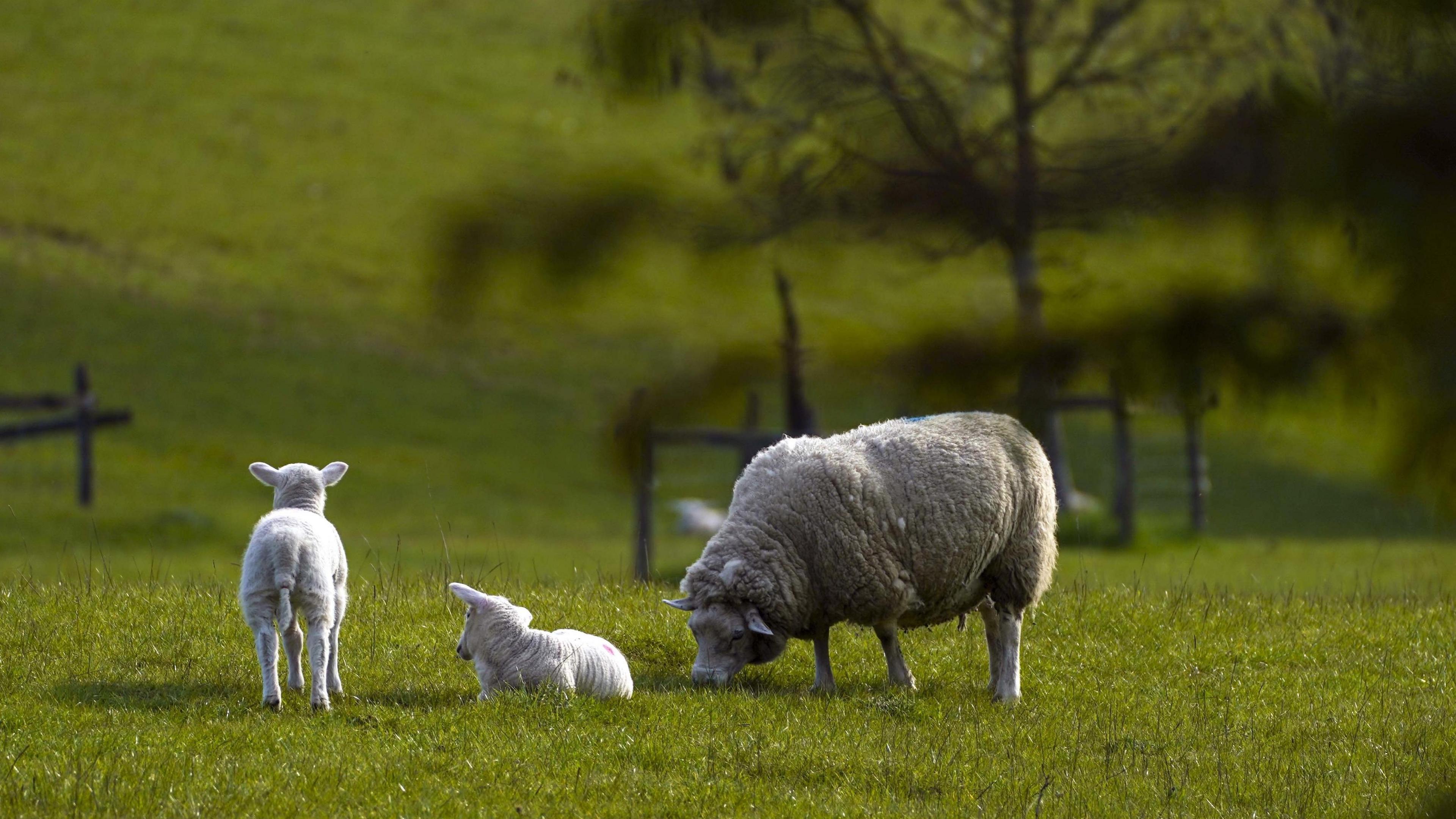
A new inheritance tax rule could impose costs on future generations
- Published
Farmers have said a change to inheritance tax rules could force them to sell up or take part in a "mass protest".
Chancellor Rachel Reeves announced in Wednesday's Budget that from April 2026 combined business and agricultural assets worth more than £1m would be taxed at 20%.
Previously, Agricultural Property Relief (APR) meant that farmland and associated buildings could be passed to future generations free of charge.
We asked farmers in the south of England for their reactions.
'Absolutely stifling'
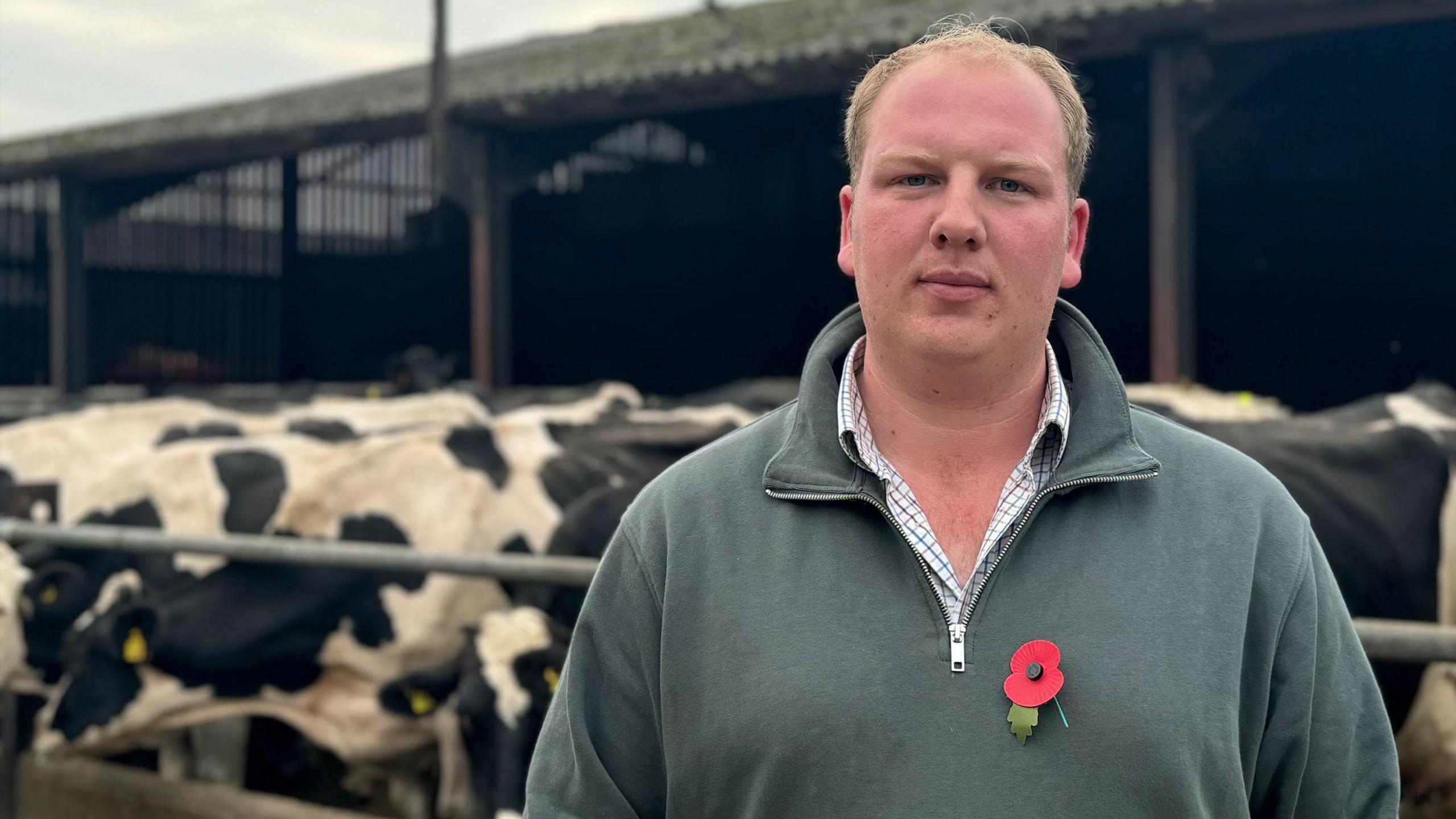
Edward Stevens said his "small" farm was worth at least £6m
Edward Stevens estimates his "small" cereal and dairy farm could generate a £1m tax bill under the new rules.
Mr Stevens, his 24-year-old cousin and his 90-year-old grandmother are all partners in the enterprise at Cole Henley near Whitchurch, Hampshire.
"What they're doing is absolutely stifling for small farms," he said.
"This farm of about 300 acres, with the properties on it, would be valued probably in excess of £6m or £7m.
"Farms do not come much smaller than this and remain viable.
"That million pound threshold needs to be probably 10 times higher as a minimum to really protect genuine small farming businesses."
The Chancellor said the £1m APR cut-off point was on top of the existing inheritance tax threshold, which could enable children to freely inherit a £1m house from their parents or grandparents.
'City money loophole'
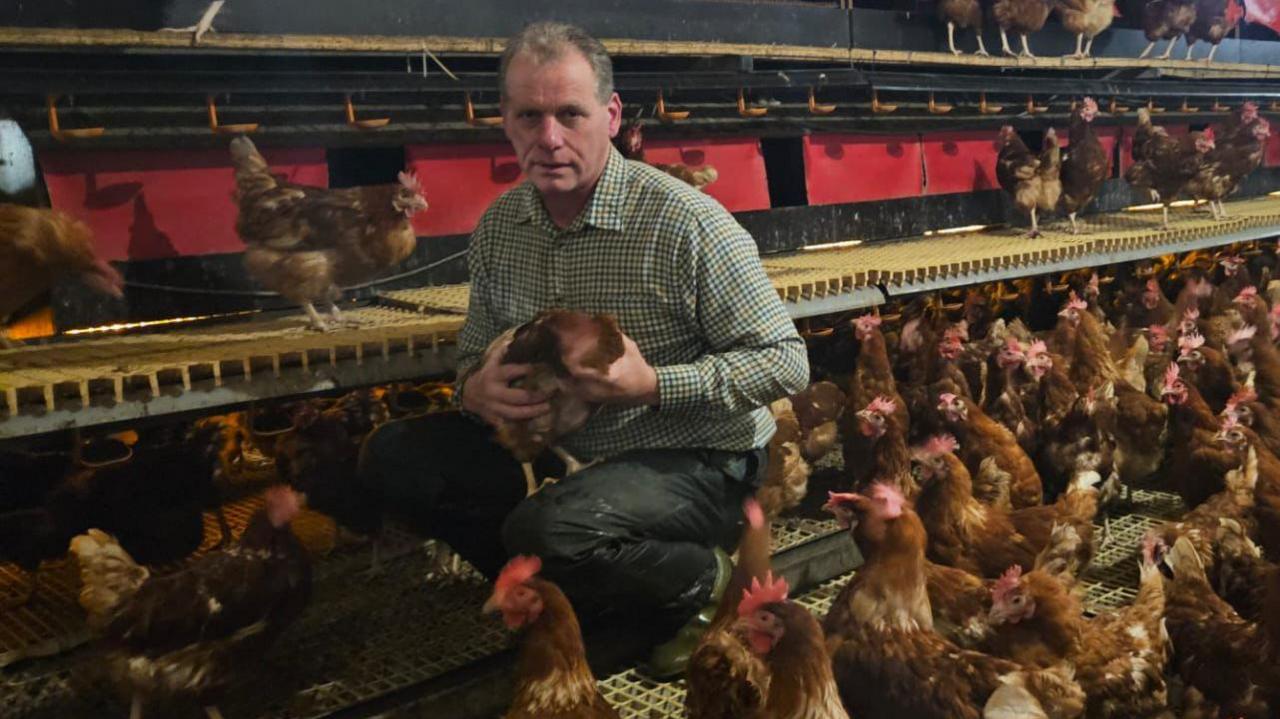
Tim Jelfs said he understood some of the Chancellor's concerns
Rachel Reeves also said the change would affect "landowners who are very wealthy, some of whom buy land to avoid paying inheritance tax".
Tim Jelfs, deputy chairman of the National Farmers Union in Dorset, said he understood the Chancellor's concern.
The poultry farmer, from Beaminster, said: "This loophole is there where we have lots of city money coming in particularly in Dorset... buying big acreage of land, driving the price of land up to unsustainable figures."
However, he disputed the Chancellor's claim that three-quarters of estates would be unaffected.
"That's going to affect most farms within the country because land values are at an all-time high and the average size of a farm today is roughly about 200 acres," he said.
"At £10,000 an acre, it's knocking the door of £2m without outside buildings or house on top.
"On our own farm, we will be looking at somewhere in the region of a £200,000 bill.
"It may mean for a lot of farms having to sell up."
'Mass protest'
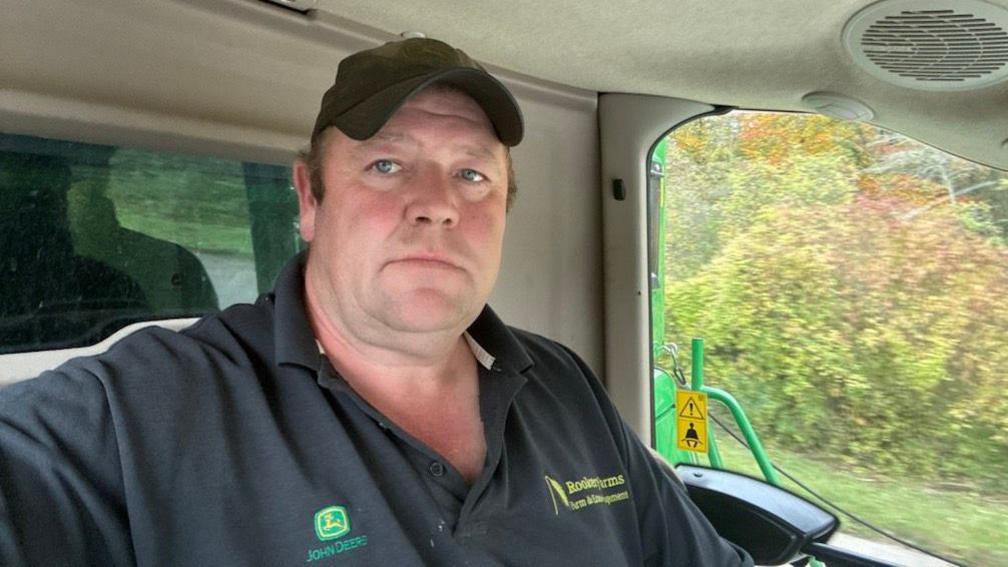
Dan Willis said the impact could be too much for farmers to bear
Berkshire farmer Dan Willis, from Curridge near Newbury, said his family had already considered giving up in the light of the tax change.
He said: "We were sat round the kitchen table earlier... discussing this very point.
"Do we stop, because how could we burden the next generation with what we've got?
"We can only hope and pray there'll be a change in government and a change of heart.
"If not, maybe some sort of mass protest and if farmers stop selling produce just for one day, the country would be to its knees.
"We don't want that... but I think some action has to be taken sooner rather than later because the impact of this is too much for many farmers to bear."
Labour 'red flag'
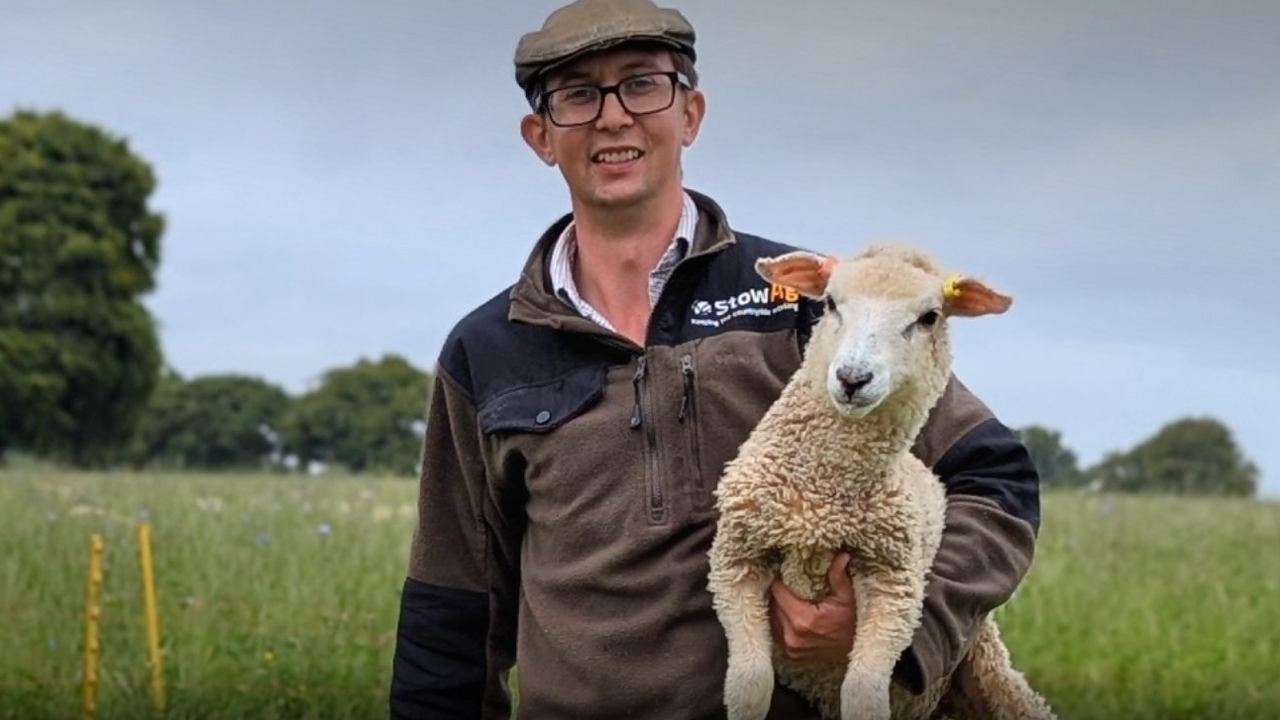
Karl Franklin said National Insurance changes could reduce the labour force on farms
Head shepherd Karl Franklin, who is not affected by the inheritance tax change, remains concerned about the future of farming under Labour.
"For me, if this is the first red flag from the government, what is there to come?" he asked.
He said an increase in National Insurance for employers could lead to a reduction in farm workers.
The Chipping Norton farmer said: "That's my worry, there's going to be a less of a labour force to produce our food.
"If you're a small farm and you're only employing a handful of people, that's money for a new member of staff or new equipment."
Get in touch
Do you have a story BBC Berkshire should cover?
You can follow BBC Berkshire on Facebook, external, X (Twitter), external, or Instagram, external.
- Published30 October 2024
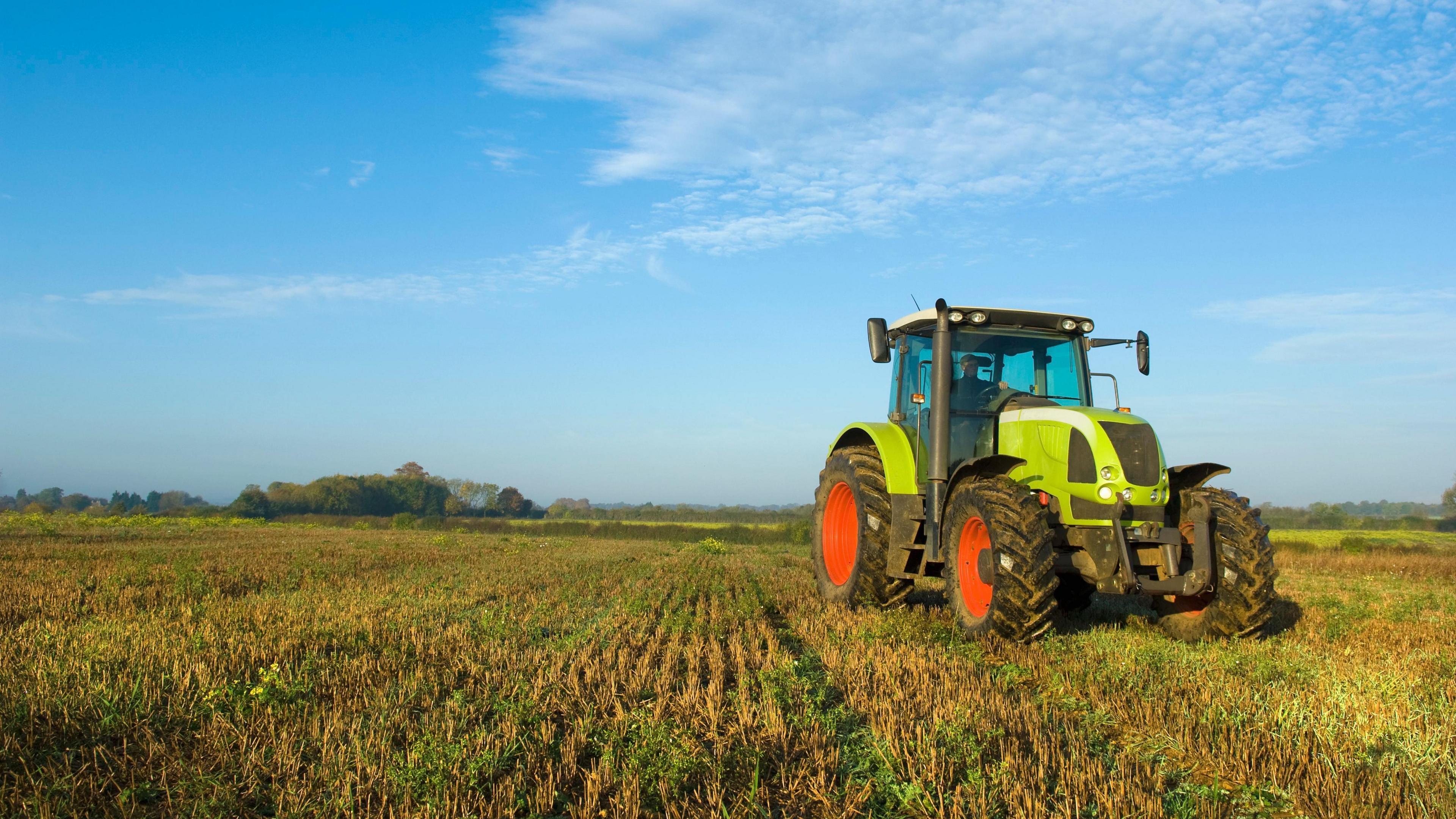
- Published19 November 2024
